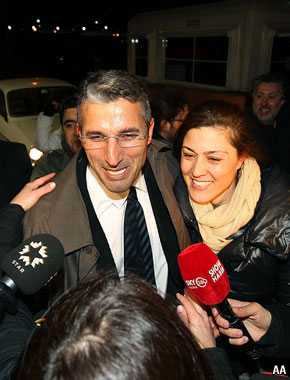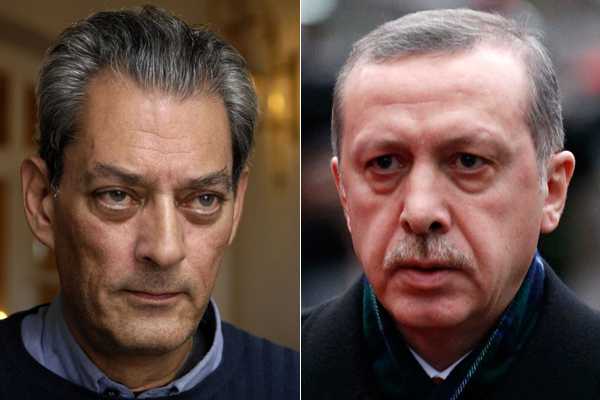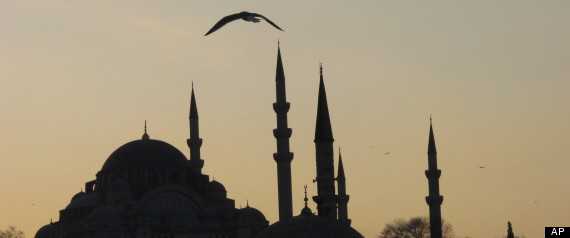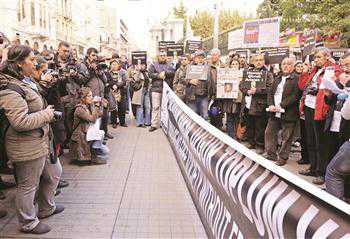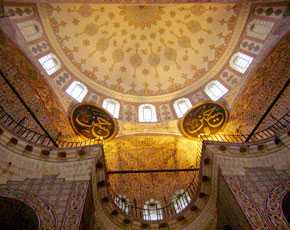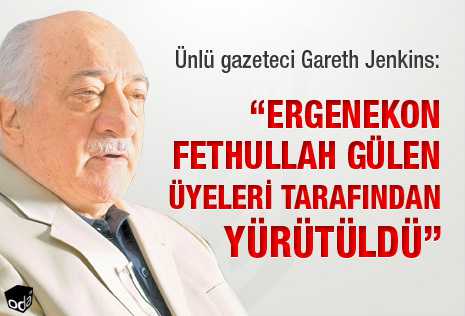
04.08.2013
Binlerce sayfayı bulan Ergenekon iddianamelerini okuyan ve “Gerçek ile Fantezi Arasında: Türkiye’nin Ergenekon Soruşturması” isimli raporun yazarı Gazeteci Gareth Jenkins, “Ergenekon soruşturması, şu an Başbakan Recep Tayyip Erdoğan ile bir iktidar mücadelesine girmiş olan Fethullah Gülen hareketinin üyeleri tarafından yürütüldü” yorumunda bulundu.
BBC Türkçe’den yansıtılan habere göre Jenkins sona yaklaşılan Ergenekon davasına ilişkin soruları yanıtladı. “Ergenekon soruşturması ilk başladığında pek çok kişi soruşturmayı yürütenlerin iddialarını ön kabul yoluyla algılamaya hazırdı. Türkiye komplo teorileri ile dolu ve derin devlet olarak bilinen Gladyo tarzı bir ağ Türkiye’nin modern tarihinin bir gerçeği” diyen Jenkins, insanlar yerleşik fikirlerini Ergenekon soruşturmasına yansıttığını söyledi. Yıllar geçtikçe hem Türkiye içinde hem Türkiye dışında davaya yönelik algının büyük ölçüde değiştiğinin altını çizen Jenkins, şunları kaydetti:
“Şimdilerde davada, en azından derin bir çatlak olduğunu bilmeyen birini bulmanız çok zor. Sanırım pek çok kişi artık davanın siyasi motivasyonla üretilmiş olduğunu anladı.
FETHULLAH GÜLEN ÜYELERİ TARAFINDAN YÜRÜTÜLDÜ
Ergenekon soruşturması, şu an Başbakan Recep Tayyip Erdoğan ile bir iktidar mücadelesine girmiş olan Fethullah Gülen hareketinin üyeleri tarafından yürütüldü. Yine de Ergenekon davası, hukukun üstünlüğünün nasıl görmezden gelinebileceğini ve Türkiye basınının baskı, kibir ve bazı mensuplarının ilkesizliği nedeniyle nasıl kontrol altına alınabileceğini göstererek Erdoğan’ın gittikçe otoriterleşen yönetim biçiminin temellerini attı. Eğer insanlar Ergenekon davasının başında, davanın gerçeklerine bakmayı başarsalardı ve hukukun üstünlüğü ve aynı fikirde olmadıkları insanların hakları için ayağa kalksalardı, bugün Ankara’da böylesine otoriter bir rejim ile karşı karşıya olmazdık.
Yüzlerce sanığı ve bu kadar sıra dışı iddia ve suçlamaları içeren her dava, hem davanın taraftarlarını hem de ülkenin hukuk sistemini yargılamakla son bulur. Bu Türkiye ve Ergenekon soruşturmasının taraftarları ve destekçilerinin kötü şekilde başarısızlığa uğradığı bir sınav.
Ergenekon iddianameleri, her siyasi şiddet eyleminden sorumlu olan hiyerarşik, merkezi olarak idare edilen ve Türkiye’nin modern tarihindeki her militan grubu yönetmiş; aynı zamanda nükleer, kimyasal ve biyolojik silahları uluslararası piyasaya satmaya hazırlanan bir örgüt suçlamasına yer veriyor. Tabii ki böyle bir örgüt yok.
Ergenekon iddianameleri çok uzun, muhtemelen kasten böyle. Sağduyusunu yitirmemiş, iddianameleri okuyup böyle bir örgütün gerçekten var olduğuna inanan herkese karşı bunu savunurum.”
“ERGENEKON DAVASININ KURBANI İKİ GRUP VAR”
Derin devlet Türkiye modern tarihinin bir gerçeği olduğunu savunan Jenkins, “Ergenekon soruşturması başladığından beri, davayı destekleyenler, bunun derin devleti hedef aldığı iddia etti. Ancak Ergenekon iddianamelerini okuduğunuzda, niyetin bu olmadığı açık olarak ortaya çıkıyor. Derin devlet özerk ve yarı özerk çete ve grupların dokunulmazlık içinde faaliyet yürütmesiydi. Bu da Ergenekon soruşturması başlayana kadar hemen hemen ortadan kalkmıştı. Ergenekon davasının kurbanı iki grup var. Gruplardan biri soruşturmayı yürütenler tarafından doğrudan hedef alınanlar; özellikle açık şekilde absürt suçlamalar ve üretilmiş ‘delillerle’ suçlanan ve tutuklananlar. Diğer grup ise gerçek derin devletin kurbanlarından oluşuyor. Örneğin 1990’lı yıllarda Güneydoğu’da binlerce kişi ölüm mangaları tarafından öldürüldü. Onlar ve aileleri için adaleti sağlamak üzere hiçbir girişimde bulunulmadı. Ergenekon soruşturmasının en korkunç taraflarından biri de gerçek derin devletin bu kurbanlarının, davayı kendi siyasi amaçları için yürütenler tarafından kullanılmasıdır.
Bu aynı zamanda, sevmedikleri insanları hedef aldığında Ergenekon davasını destekleyen ve arkadaşlarını hedef aldığında eleştiren; fakat gerçek derin devlet tarafından işlenen suçlar yüzünden adalet bekleyen insanlara hiçbir ilgi göstermeyen ‘liberal entelektüellere’ de uzanıyor” dedi.
“AVCI İLE ŞIK’IN AYNI ÖRGÜTE AİT OLABİLECEĞİNİ DÜŞÜNEN HERKESİN BİR DAHA DÜŞÜNMESİ GEREKİR”
Ergenekon davasında yargılananların paylaştıkları tek özelliğin hepsinin “Gülen hareketinin gerçekten veya öyle algılanan karşıtları veya rakipleri olması” olduğunu öne süren Jenkins, “Davayı kimin yürüttüğüne işaret eden başka pek çok kanıt var ama sadece suçlananların isimlerine bakmak da yeterli. Solculara yönelik kötü muameleyle ünlü sağcı eski emniyet müdürü Hanefi Avcı ile sosyalist gazeteci Ahmet Şık’ın aynı örgüte ait olabileceğini düşünen herkesin bir daha düşünmesi gerekir. Ama tabii ki, Avcı ve Şık, Gülen hareketi üyelerinin emniyet ve yargı sistemine nüfuz etmelerini ayrıntılandıran kitaplar yazmışlardı” ifadelerini de kullandı.
Odatv

